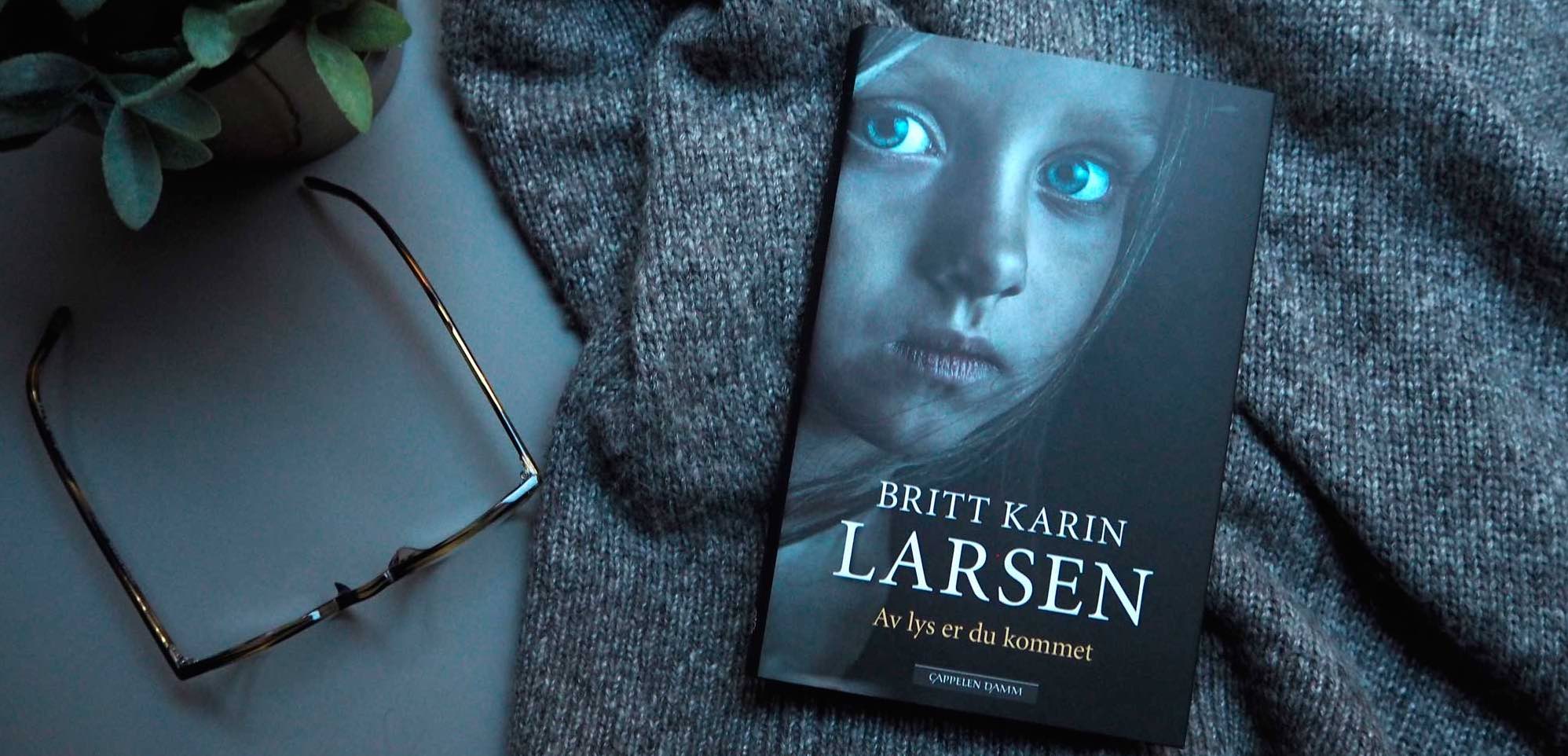
‘I was beaten a lot. That’s what I remember most from my childhood, for it really was very painful,’ says Britt Karin Larsen soon after she begins talking about her latest book, You came from light (Av lys er du kommet)
She continues:
‘First the birch whip would be fetched from the woods, then it would be soaked in warm water so that it would bend properly, and then followed the beating. As a small child, by then I had usually quite forgotten why it was happening.’
The answer follows a question about whether she identifies with or has been through the same experiences as Anni, the main character in her book. Anni toils through her upbringing in a foster home with all too little love and a lack of safe boundaries.
‘My mother told me that I mustn’t believe that anybody thought we were worth anything. She felt herself worthless too, my mother, but you couldn’t see that from the outside. She always said that she had to beat me so that I would become a proper, well-behaved person.’
“My mother beat me so that I would become a proper, well-behaved person. I screamed terribly, and she didn’t like that at all.”
An illegitimate child
Britt Karin Larsen was born to an unmarried mother. That was not easy in a town in Eastern Norway in the 1940s. She grew up with her mother and grandparents. They were Skogfinns, but they never spoke about that, because the Travelling People and the Skogfinns felt looked down upon.
Larsen recalls her grandfather, who lived in the same house and whom she loved because he never hit her.
‘My grandfather never laid a hand on anybody, he was so kind. He wasn’t impatient with me. But the one and only time I wanted to give him a hug, he pushed me away. There was no hugging in that house. I never saw him and my granny give each other a hug.
A review in the newspaper, Hamar Arbeiderblad, states: “Britt Karin Larsen’s new novel, You have come from light deal with problems which concern us all”
The wound that never heals
Growing up knowing that you are unwanted must be incredibly painful. Do you ever believe that the wound inside you can heal?
‘It should surely heal at some time. Sometimes I can think “oh, now I’ve put it behind me,” but then it comes sneakily back at the next crossroads, where you feel totally worthless.’
Are you angry with her, or have you accepted or come to terms with the upbringing she gave you?
‘It wasn’t cruelly meant on her side, physical punishment was quite usual at that time. I don’t bear any grudge; I reconciled myself properly with my mother when I had children myself. Then I realised that even though you do the best you can, things can still go wrong – but the people who matter most to you are the ones it is most painful to have a difficult relationship with.’
“The one and only time I wanted to give him a hug, he pushed me away. There was no hugging in that house.”
Abandoned and vulnerable
Let’s go back to the novel. Can you tell us a little more what it’s about?
‘The book is about a main character who grows up feeling quite alone. Then she meets somebody she feels fiercely attracted to, and that can also go badly off course, when a little girl wants to be as close to a grown man as possible.’
“This isn’t an autobiography, but she surely uses episodes from her own life.”
The importance of yearning
Larsen says that some of the events in the book are things she has experienced herself.
‘For example, sitting by the telephone making call after call after call.. in an attempt to find a missing parent you have never had a relationship with, because you need to identify, or perhaps find, some roots.’
In the novel we meet a girl who doesn’t know why she is living with her foster parents. She doesn’t know why her mother doesn’t want her. In adult life she starts looking for answers to these questions, both to understand her own feeling of exclusion and to give her own daughter a starting point.
You create problems by longing for answers. Shouldn’t we just let sleeping dogs lie?
‘I want to show that in what is lacking, in what you know nothing about and still have no answers for, there are so many possibilities.’
She pauses thoughtfully.
‘There are big risks in finding all the answers. If you don’t get all the answers there is still a possibility remaining, so perhaps we shouldn’t deprive ourselves of all the possibilities? Something may be left unanswered, as a possibility.
A story about childhood
Britt Karen Larsen says that she was already working on You have come from light before she started her critically acclaimed series about the life and people of Finnskogen.
‘I often write about several things at the same time, even though I perhaps shouldn’t do that so much. But that stuff had been lying there for a long time.’
What do you want to say with the book?
‘I just wanted to share a story. The day I have no more to share, I shall stop writing. But thinking back, perhaps somebody can be reminded of how important childhood and growing up are? It’s important for children to feel that they are worth something; that they feel precious, and that they are not worthless.’
Britt Karin Larsen was interviewed by Tonje Skjervold for Forlagsliv. The interview is translated from Norwegian by Frank Stewart.